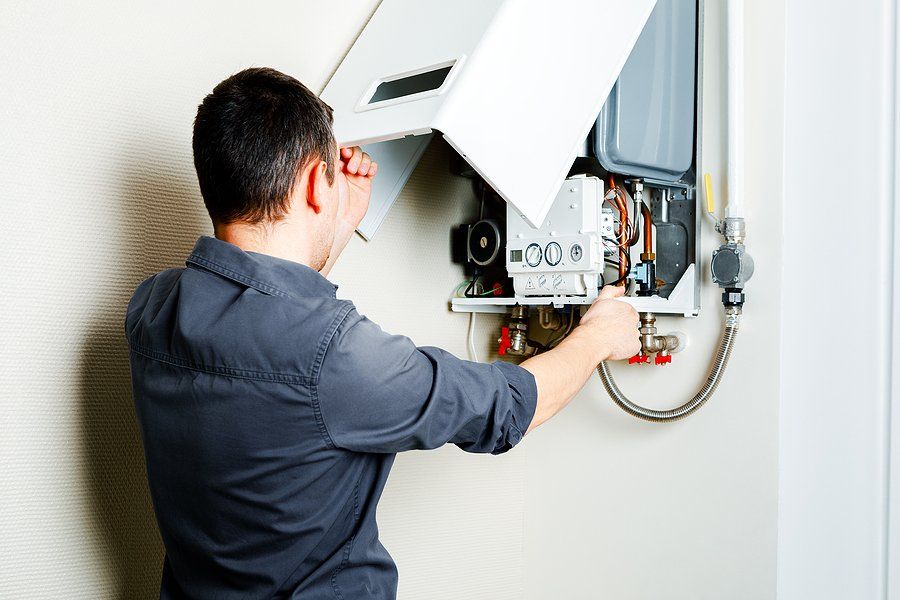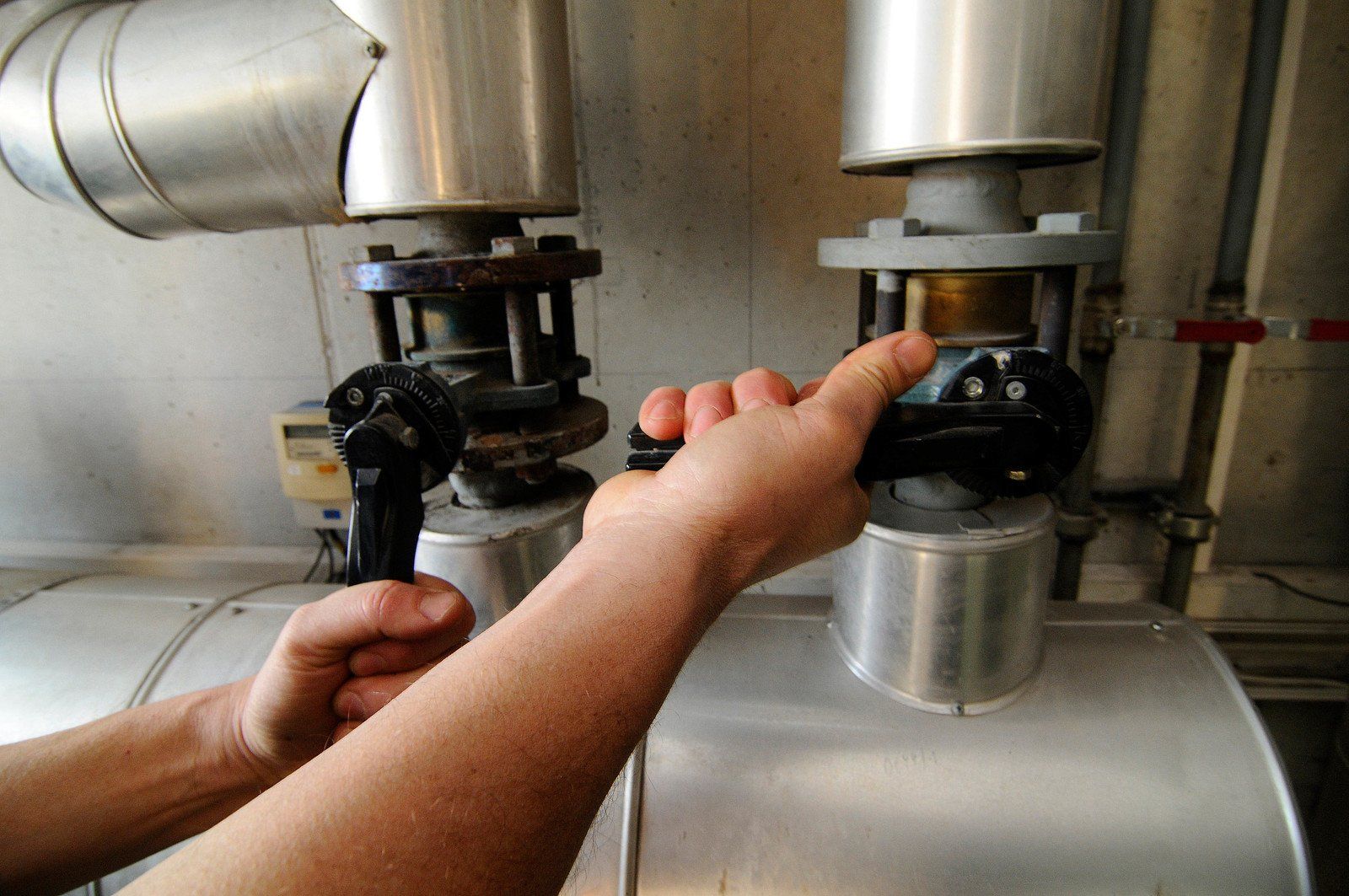
Discover Top Gas Furnace Near Me: Your Heating Guide
Finding the right gas furnace isn’t just about keeping warm. It’s about investing in comfort and efficiency for your home.
A reliable heating system ensures you’re not left in the cold when temperatures drop.
Understanding Gas Furnaces
So, what exactly is a gas furnace?
At its core, a gas furnace uses natural gas to heat your home. It’s a system that converts gas into heat through combustion.
How Gas Furnaces Work: The Basics
Here’s the scoop: a gas furnace burns natural gas to generate heat. This heat is then distributed through your home via ducts or radiators.
The Different Types of Gas Furnaces
Not all gas furnaces are created equal. You have single-stage, two-stage, and modulating furnaces. Each has its own way of managing heat output.
Assessing Your Heating Needs
First things first: you need to evaluate your home’s size and layout.
Evaluating the Size and Layout of Your Home
A furnace that's too small will struggle to heat your space. One that's too big will waste energy.
Understanding Your Heating Requirements
Consider how often you use your heating system and your typical temperature preferences.
How to Determine the Right Furnace Capacity for Your Space
A professional can calculate the exact capacity needed. But in general, larger spaces need more powerful units.
Researching Gas Furnace Options
Starting your search? Focus on key features and what’s most important for your needs.
How to Start Your Search for Top Gas Furnaces
Begin with reputable brands and models. Read up on their specifications and user reviews.
Key Features to Look for in a Gas Furnace
Look for energy efficiency, quiet operation, and reliability. Modern features like smart thermostats can also be a plus.
Comparing Brands and Models: What You Need to Know
Not all brands offer the same quality or efficiency in their gas furnace installation. Compare their specs, warranties, and user reviews.
Top Gas Furnace Brands
Looking for top brands? Companies like Carrier, Trane, and Lennox often lead the pack.
Leading Gas Furnace Brands You Should Consider
These brands are known for their reliability and efficiency. They also offer various models to fit different needs.
What Sets These Brands Apart: Quality and Performance
Quality construction, innovative technology, and excellent customer service are what make these brands stand out.
Company Reputation
Before choosing a furnace, check out the company behind it.
Checking Reviews and Ratings of Gas Furnace Brands
Read reviews on sites like Yelp and Google. Ratings can give you a snapshot of performance and reliability.
The Role of Customer Testimonials in Your Decision
Testimonials from other customers can provide insights into the brand’s service and support.
How to Verify Company Credentials and Reliability
Check for industry certifications and memberships. A reputable company should have proper credentials.
Cost Considerations
Price is a big factor, but it’s not just about the initial cost.
Understanding the Costs Involved in Purchasing a Gas Furnace
Factor in the cost of the unit itself, installation, and any additional components.
Breaking Down the Pricing: What’s Included
Make sure you understand what’s included in the price. Installation, warranties, and any add-ons should be clear.
Tips for Comparing Prices and Finding the Best Deal
Get multiple quotes and compare them carefully. Look beyond the base price to see what each quote includes.
Energy Efficiency
A more efficient furnace can save you money in the long run.
The Importance of Energy Efficiency in Gas Furnaces
Higher efficiency means lower energy bills. Check the furnace’s AFUE (Annual Fuel Utilization Efficiency) rating.
How to Read and Compare Energy Efficiency Ratings
A higher AFUE rating indicates better efficiency. Compare these ratings across different models.
The Financial Benefits of Choosing an Energy-Efficient Furnace
An efficient furnace can reduce your heating costs and possibly qualify you for rebates or incentives.
Installation and Maintenance
Proper installation and maintenance are key to a furnace’s performance and lifespan.
The Importance of Professional Installation
A professional installer ensures your furnace is set up correctly and operates efficiently.
What to Expect During Furnace Installation
Installation typically involves removing the old unit, setting up the new one, and ensuring all connections are secure.
Routine Maintenance Tips to Keep Your Furnace Running Smoothly
Regular maintenance, like changing filters and checking for leaks, can extend your furnace’s lifespan.
Warranty and Support
A good warranty and strong support are crucial for peace of mind.
Understanding Furnace Warranties: What’s Covered
Warranties usually cover parts and sometimes labor. Check the specifics to know what’s included.
How to Get the Most Out of Your Warranty
Keep up with regular maintenance and keep records to ensure your warranty remains valid.
The Role of Customer Support in Your Furnace Experience
Good customer support can assist with any issues and provide peace of mind.
Finding Reliable Furnace Installers
Choose an installer who is experienced and highly rated.
How to Locate Top Furnace Installation Companies Near You
Look for local companies with good reviews and strong reputations.
What to Look for in a Professional Furnace Installer
Ensure they are licensed, insured, and experienced with the type of furnace you’re installing.
Questions to Ask Potential Installers
Ask about their experience, warranty options, and post-installation support.
Emergency Repairs and Services
Sometimes things go wrong. Know how to handle emergencies.
What to Do If Your Furnace Breaks Down
Turn off the furnace and contact a repair service. Avoid trying to fix it yourself.
How to Find Emergency Repair Services
Look for local services that offer 24/7 repairs and have good reviews.
Tips for Handling Furnace Emergencies
Have a contact list of reliable repair services and know how to troubleshoot common issues.
Local Regulations and Compliance
Make sure your furnace installation meets local codes.
Understanding Local Codes and Regulations for Furnace Installation
Local regulations ensure your installation is safe and up to code.
Ensuring Compliance with Local Standards
Check with local authorities or your installer to ensure everything is compliant.
What to Check for in a Company’s Compliance Practices
Verify that your installer is knowledgeable about local regulations and follows them.
Sustainability and Green Options
Consider eco-friendly options for your furnace.
Exploring Eco-Friendly Gas Furnace Options
Look for models with higher efficiency ratings and lower emissions.
How Green Choices Can Impact Your Heating Efficiency
Sustainable models often use less energy and can be more cost-effective over time.
Incentives and Rebates for Choosing Sustainable Heating Solutions
Check for any available rebates or incentives for choosing an energy-efficient model.
Customer Satisfaction
Gauge overall satisfaction with your furnace and installer.
How to Gauge Overall Customer Satisfaction with Your Furnace
Read reviews and ask for referrals to get a sense of customer satisfaction.
The Importance of Follow-Up Services and Support
Good follow-up can ensure ongoing satisfaction and address any issues.
Reading Between the Lines: What Reviews Really Indicate
Look beyond the ratings to see what people are saying about the product and service.
Financing and Budgeting
Plan your budget and explore financing options.
Available Financing Options for Gas Furnaces
Many companies offer financing plans to help with the cost.
How to Manage Your Budget for Furnace Purchase and Installation
Include all costs in your budget: the unit, installation, and any additional expenses.
Tips for Finding Affordable Financing Plans
Compare financing offers and look for the best terms.
DIY vs. Professional Services
Consider whether to handle installation yourself or hire professionals.
Weighing the Pros and Cons of DIY Furnace Installation
DIY might save money but could risk improper installation.
Why Professional Installation is Often the Better Choice
Professionals ensure proper setup and compliance with safety standards.
How to Find Companies Offering Both DIY Support and Professional Services
Some companies offer guidance for DIY or handle the full installation.
Preparing for Installation
Get ready for a smooth installation process.
Steps to Prepare Your Home for Furnace Installation
Clear the area around your furnace and make any necessary arrangements with your installer.
What to Discuss with Your Chosen Installer Before Work Begins
Review the installation plan, costs, and timeline with your installer.
Post-Installation Follow-Up
Ensure your new furnace is running well and address any issues promptly.
What to Expect After Furnace Installation
Expect a thorough check of the system and a briefing on operation and maintenance.
How to Ensure Proper Functioning and Longevity of Your New Furnace
Follow maintenance recommendations and schedule regular check-ups.
Troubleshooting Common Issues
Learn to identify and address common furnace problems.
Common Problems with Gas Furnaces and How to Address Them
Common issues include poor heating or unusual noises. Know how to handle basic troubleshooting.
When to Contact a Professional for Support
If issues persist or are beyond basic troubleshooting, contact a professional.
Conclusion
Choosing the right gas furnace involves more than just picking a model.
Recap of Key Factors to Consider When Choosing a Gas Furnace
Consider factors like efficiency, cost, installation, and support.
Final Tips for Finding and Installing the Best Gas Furnace for Your Home
Do your research, plan your budget, and choose a reputable installer.
Encouraging Proactive Planning and Maintenance for Optimal Heating
Proper planning and regular maintenance will ensure your furnace keeps you warm for years to come.
SPEAK TO A TEAM MEMBER TODAY
Navigation
Navigation
344 Foster Rd. Tewksbury, MA United States 01876


